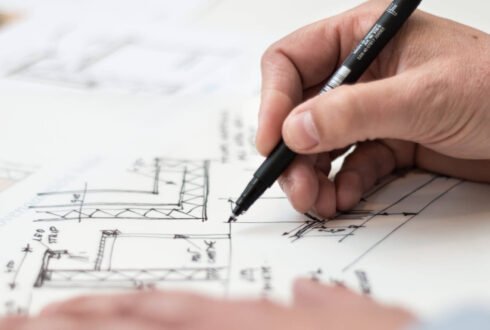Construction Planning
Construction Planning
Our Professional & Expert Team
Construction planning is a fundamental and challenging activity in the management and execution of construction projects. It involves the choice of technology, the definition of work tasks, the estimation of the required resources and durations for individual tasks, and the identification of any interactions among the different work tasks. A good construction plan is the basis for developing the budget and the schedule for work. Developing the construction plan is a critical task in the management of construction, even if the plan is not written or otherwise formally recorded. In addition to these technical aspects of construction planning, it may also be necessary to make organizational decisions about the relationships between project participants and even which organizations to include in a project. For example, the extent to which sub-contractors will be used on a project is often determined during construction planning.
Why Choose Our Service?
We have you in mind through the whole process. Why can't you try us?
Expert People
Our team takes up everything. We have experienced project planners and managers.
Certified Company
We have been approved nationally and internationally as great service providers
Quality Work
We are taking over the industry, in a slow, sure way
24/7 Support
Our services do not stop at completion of the projects, we offer maintenance round the clock
In developing a construction plan, we adopt a primary emphasis on either cost control or on schedule control as per the correct method. Some projects are primarily divided into expense categories with associated costs. In these cases, construction planning is cost or expense oriented. Within the categories of expenditure, a distinction is made between costs incurred directly in the performance of an activity and indirectly for the accomplishment of the project. For example, borrowing expenses for project financing and overhead items are commonly treated as indirect costs.


Architecture involves a lot of strategy and planning. From the beginning, business owners, architects, and construction management must work together to find a cohesive project that fits everyone’s standards. While it may seem like a given to put thought behind the planning process, some don’t realize how helpful the art of master planning can be to any given project.
Architectural master planning is the critical first step in any design process. It is the creation of a framework in which the whole project proceeds. Headed by a lead architect, a project’s planning phase considers the entire picture through detailed work. The process involves examining the design and style of the building, surrounding infrastructure, local government requirements, and so on. It should also include determining the purpose of the structure, goals of the project, and other essential elements. By creating a master plan, the entire project is likely to go as planned and lead to an exciting development.
